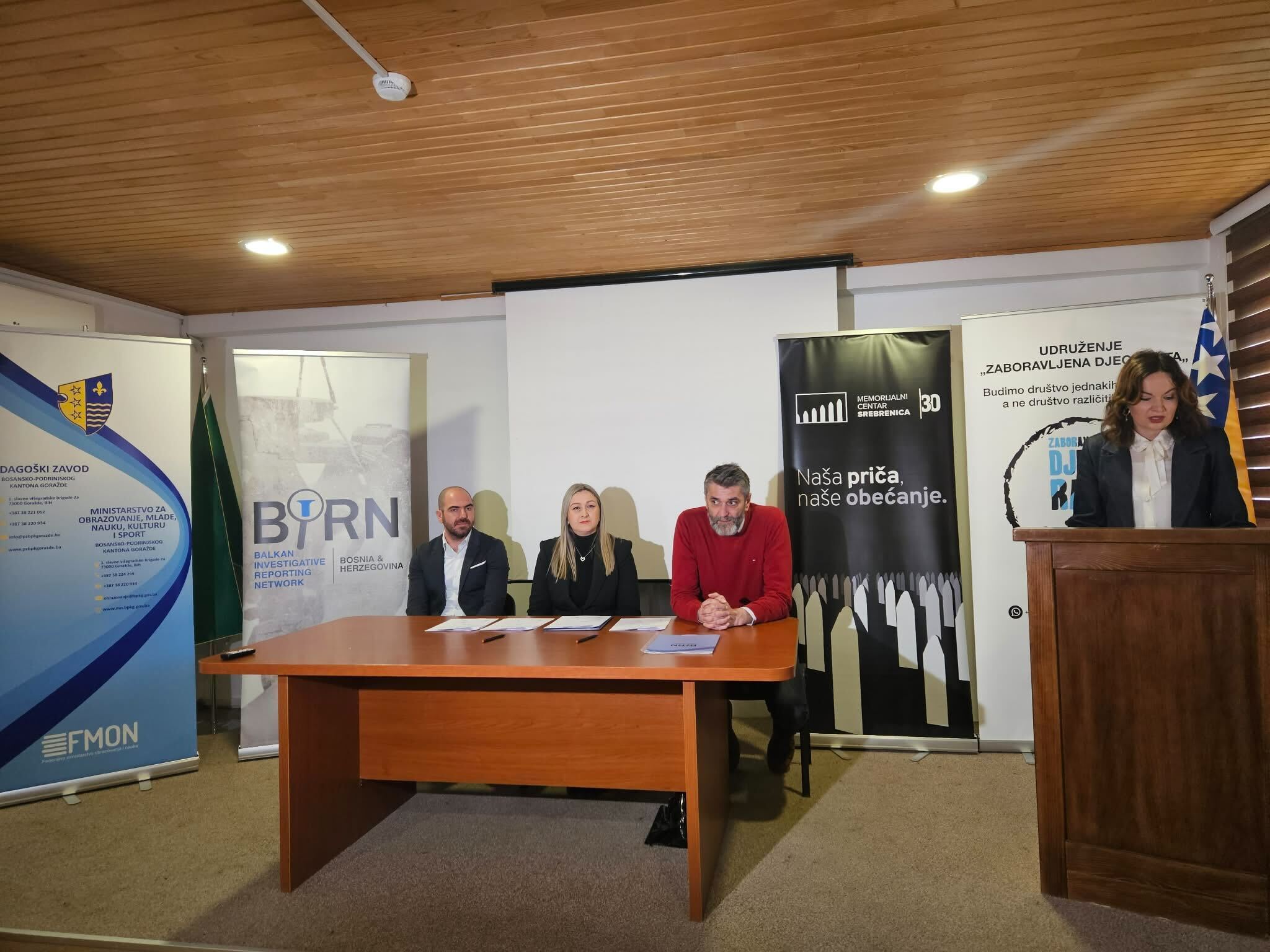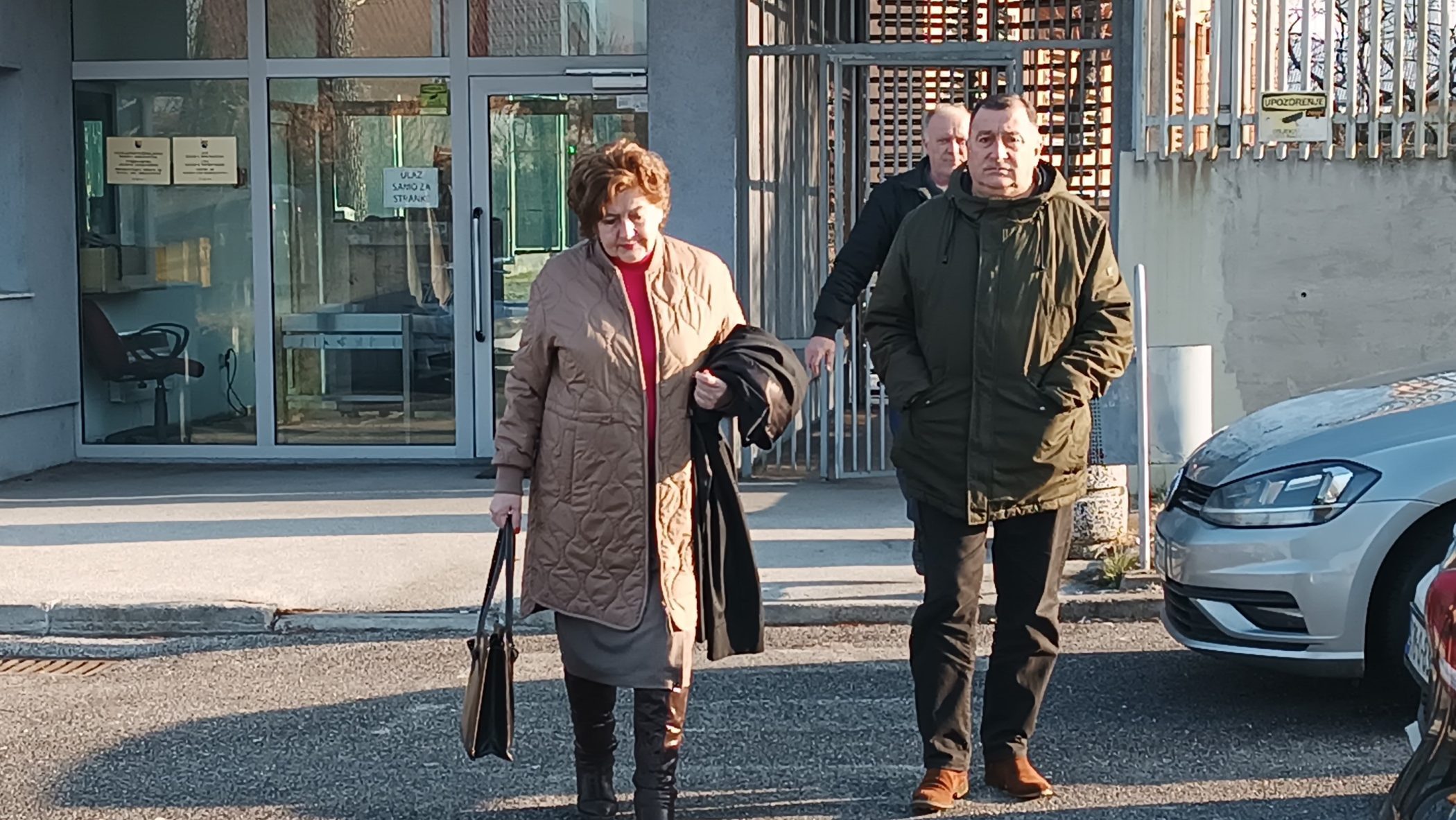This post is also available in: Bosnian
Witness Fata Sabanovic changed a statement previously given to the trial chamber and investigative bodies in the case of former Bosnian Serb policeman Boban Simsic.
Taking the witness stand for the second time this year, Sabanovic said that Simsic was explicitly involved in the murder of her husband in Visegrad in 1992.
Previously she had said that Simsic was present when Bosnian Serb soldiers arrested her husband but did not know if the accused was involved in his murder. She had given a similar statement to the state commission for collection of facts on war crimes in the Nineties.
Fata Sabanovic’s husband was killed in 1992, in village Velji Lug near Visegrad. Simsic is charged with the crimes committed in this village.
In the statement given to the state commission, the witness was reported assaying that she “did not see what happened to her husband, but that Ramiza Sabanovic and other women who were there told her”.
But the validity of the statement, which the defence presented in its evidence, has become the subject of a long-running dispute in the courtroom as Sabanovic could not recall ever signing it.
Visibly distressed, Sabanovic said on Friday that the statements given previously were not her own and that she was too afraid to speak openly, but that now she was telling the whole truth about the death of her husband.
This time she told the trial chamber that she “saw with her own eyes what happened to her husband”.
Asked why her testimony is different from the one in the written statement to the state commission, Sabanovic said she did not know anything about it.
“I don’t know what I am supposed to have signed. I don’t know who gave such a statement. I only know what I have experienced…” she told the defence counsel. “I’ll never forget what those sitting beside you have done to me.
“I hope that Boban will tell me where he took my husband.”
Until now, the defence asserted that this was the key testimony in proving the innocence of the accused but on Friday counsel Veljko Civsa said he would call for Sabanovic’s testimony to be struck off the record.
The panel of judges also put forward a request by the Hague tribunal for the defence to reveal how they came into possession of Sabanovic’s alleged written statement. Civsa replied that that was of “secondary importance” and that he was not obliged to provide this answer.
Earlier this week the War Crimes Chamber accepted a request by Boban Simsic’s defence counsel to hear the testimony of Mitar Vasiljevic via video link from the Hague Tribunal.
Mitar Vasiljevic, has been found guilty of war crimes committed in Visegrad by the UN War Crimes Tribunal in the Hague, and is awaiting a decision on his appeal against the judgment.
Simsic’s lawyer, Veljko Civsa, said he wanted to call the Hague detainee because numerous witnesses during the trial had connected Simsic with Vasiljevic.
“I want to hear from Mitar Vasiljevic whether he and Boban Simsic were together in the Visegrad fire station and Hasan Veletovac School at the time when the crime with which Simsic is charged was committed,” Civsa said on Monday.
According to the indictment, Simsic was a guard in the Hasan Veletovac School, which was used for the unlawful detainment of Bosniak civilians in the second half of June 1992.
During this time, according to the indictment, Simsic “alone or with other members of Serb army, police and paramilitary formations participated in the murder of at least one Bosniak civilian, the forced disappearance of at least eight civilians, the rape of numerous girls and young women, and robbery”.
The prosecutor, Ibro Bulic, opposed Vasiljevic’s testifying, claiming it was a deliberate attempt by the defence to stall the trial.
“It’s obvious this is a way to drag out the trial in order to reach the date when Simsic’s legal detention time will run out and he will have to be released,” Bulic said.
The indictment against Boban Simsic was confirmed on July 8, 2005. The law stipulates that an accused can be held in detention for a year from the day the indictment is confirmed.If a judgment has not been delivered by then, the accused is released from detention.
The trial chamber disregarded the prosecutor’s argument. The trial will continue on June 12.



